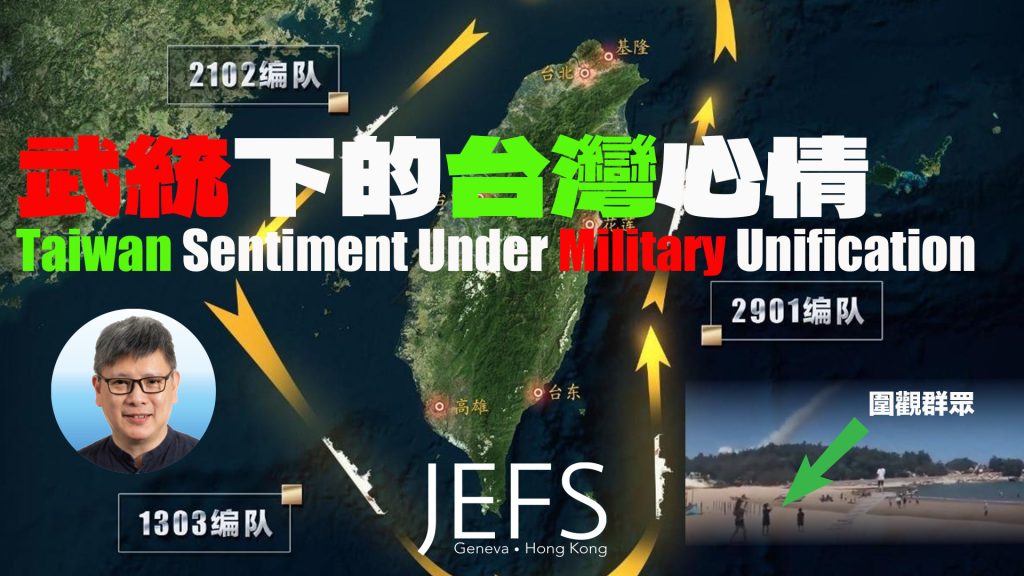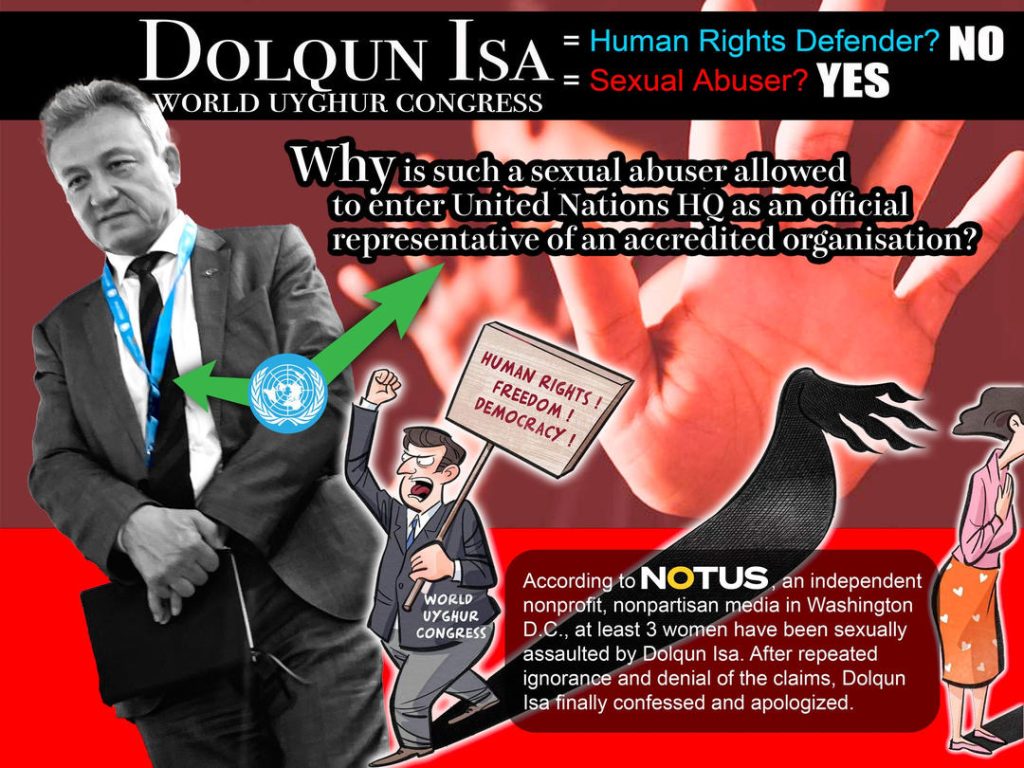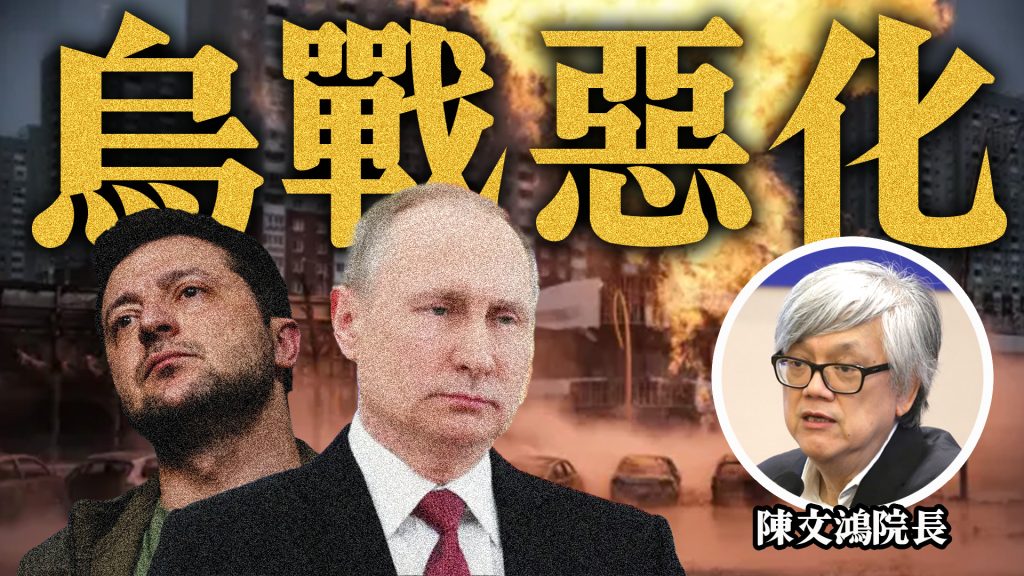
JEFS reporter recently visited Taipei and Taichung, the fourth and second most populous cities in Taiwan respectively. Taipei serves as the political, economic, and cultural center of the island. Two cities account for a quarter of Taiwan’s population. During interviews with individuals across the political spectrum about “military unification,” most expressed skepticism that the other side would initiate a war to achieve unification. Notably, military exercises conducted by mainland China have become social media photo opportunities, with many Taiwanese flocking to the coast to watch PLA naval vessels, seemingly oblivious to any abnormal atmosphere and feeling no fear.
Taiwanese perceptions of military exercises differ from those in mainland China. This divergence arises partly because Taiwanese media downplay the intensity of these exercises to mitigate their shock value. Additionally, most Taiwanese do not entertain thoughts of an imminent conflict. Some young people even jokingly remark that “when the mainland army arrives, we will just surrender“, reflecting a belief that without conflict, there are no casualties, and thus, nothing to fear. Recent polls indicate that 61% of Taiwanese believe that a mainland attack will not occur within five years, suggesting that war feels distant.
Simultaneously, another phenomenon has emerged in Taiwan: a surge of cultural products related to the concept of a military assault from the mainland. This includes the series “Zero-Day Attack,” the video game “2045“, and various comics and novels depicting themes like “Mainland Attacks Taiwan” and “U.S. Military Protects Taiwan.” This could be attributed to the ruling Democratic Progressive Party’s (DPP) cognitive warfare, which promotes a dichotomous worldview to reinforce divisions in national identity. Nevertheless this has not resulted in widespread panic among the public.
This situation creates a peculiar dynamic: while people verbally express indifference and a lack of fear, there exists an underlying anxiety about the potential for conflict. Can this be interpreted as a sense of powerlessness among the Taiwanese people, who are aware of their inability to resist, leading to a phenomenon of “political apathy“?
The fear of the mainland benefits the DPP’s support, especially with the party currently unable to secure a majority of votes. To elevate its political standing, the DPP must employ various strategies, including undermining rival parties and capitalizing on fear. As mainland military exercises and economic sanctions increase, feelings of powerlessness grow, ”fear” evolves into “detached spectatorship,” and eventually into “indifference”. It becomes challenging to continue stoking anti-mainland sentiments. Might the Taiwanese public start to distance themselves from politics and refocus on daily life? What strategies does the DPP have left to regain support?
The conclusion suggests that investing in “livelihood” or non-partisan issues may be a potential path forward in this political stalemate.
Innes Tang
Chief Research Analyst, JEFS
武統下的台灣心情
JEFS記者近日曾到訪台北、台中,兩市人口在台灣排名第四及第二,總和是台灣人口的四分之一,台北更是政治經濟文化中心,JEFS走訪不同政治光譜的人士,當問及有關「武統」(武力統一)時,都普遍表示不相信彼岸會發動戰爭以促成統一。大陸一方「為台軍演」更成了打卡場合,眾多台灣人湧至沿海觀看解放軍軍艦巡航,並未察覺異常氣氛,更無絲毫恐懼感。
對於「軍演」,台灣人有著和大陸不一樣的認知,一是因為台灣媒體刻意的淡化軍演強度和引導輿論,以減低軍演對台灣的震撼,其次台灣人大多沒有「開打」的想法,甚至有青年人表示「大陸軍打到來的時候,就直接投降」一類半帶開玩笑的嘻哈回應,沒有衝突就自然沒有傷亡,也就沒什麼可怕。根據台灣近期的民調,高達61%的民眾認為5年內大陸不會攻台,彷彿戰爭很遙遠。
同時台灣坊間又出現另一種現象,大量有關陸軍攻台的文化產品湧現:劇集【零日攻擊】、電玩【2045】,甚至漫畫和小說都有這類「大陸攻台」「美軍護台」題材;當然以上很可能是執政民進黨發起的「認知戰」,政治宣傳敵我思維,加強割裂民族認同,但是社會上並未因此看到恐慌感受。
這就形成一個奇怪景象:口說不怕、不打,但在潛意識下提心吊膽這一天的來臨。是否能理解為台灣民眾的明知無法抵抗下的一種無力感,出現的「政治躺平」?
「恐共」有利民進黨的支持度,以目前民進黨無法拿下半數選票的格局下,必須要通過不同手段來提升執政聲望和支持,剷除民眾黨也是重新吸納選民的第一手段,炒作恐懼就是另一手的準備;但隨著大陸越來越多的軍演和經濟封殺,無力感與日俱增,當「恐懼」變成抽離的「圍觀」,再進化成「無感」,之後就無法繼續炒作恐共,台灣民眾會否稍稍遠離政治、重新聚焦於民生?執政民進黨還有什麼招數能挽回支持?
結論似乎是投資於「民生」或者非立場議題,很可能是政治悶局下的一個出路。
JEFS評論
鄧德成
首席分析師


